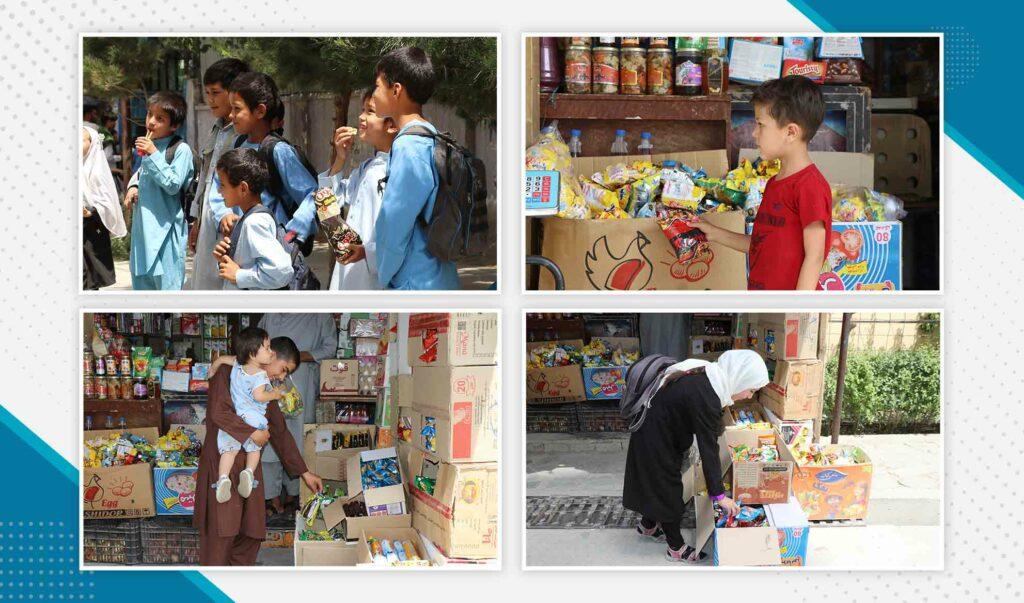By Kashmir Khan Vida Qalandari
KABUL (Pajhwok): Chief physician at the Indira Gandhi Children’s Hospital and several other medical professionals have praised Pajhwok’s recent report titled “Chemical-laden snacks harm children’s health”, calling it an effective step in raising public awareness and urging action from relevant authorities to stop the sale of harmful food products targeting children.
Pajhwok Afghan News published the report on June 29, and it has since been praised by both doctors and parents for its informative content and timely message.
Doctors’ Reactions
Dr. Khyber Sahak, Chief Physician at Indira Gandhi Children’s Hospital in Kabul, said: “First of all, I thank Pajhwok Afghan News for producing this report. It allows us to educate mothers and sisters about the harmful products being sold in markets. These snacks are causing children to suffer from various illnesses.”
He emphasized the role of parents in preventing their children from consuming such items and encouraged preparing healthy, quality food at home instead.
Dr. Ramesh Qadeer, General Surgeon at the Children’s Health Hospital, noted:
“I read the entire report, and it thoroughly covers all aspects of the issue. The positive impact of such reporting is considerable—anyone who reads or watches it will certainly try to stop their children from consuming these harmful products.”
Dr. Sayed Farid Shah Rafiyee, Internal Medicine Specialist at Wazir Mohammad Akbar Khan Hospital, stated: “Pajhwok’s report on the use of chemical colors in children’s food is a critical warning for the health of future generations. These additives can cause digestive problems, allergic reactions, cognitive issues like poor concentration and memory, and even serious long-term risks such as cancer.”
He added that such reports not only raise public awareness but also pressure responsible institutions to take regulatory action and prompt legal reforms to control unhealthy products.
“I recommend closer collaboration between health professionals and the media to pursue and strengthen such initiatives, leading to real and positive change,” he concluded.
Dr. Faridullah Omari, Trainer and Infectious Disease Specialist at the National Infectious Diseases Hospital in Kabul, said: “We appreciate and support such reports and always call for more content like this to help prevent children from falling victim to various illnesses.”
Dr. Javid Hajir, Public Relations Specialist at the Deputy Ministry of Food and Drugs (Ministry of Public Health), also welcomed the report, calling it instrumental in boosting public awareness.
“These issues are real, and our teams at the Food and Drug Authority encounter them on a daily basis. Fortunately, we’ve managed to address many of these cases. This year, our public awareness department has become more active, conducting educational outreach in schools and other venues.”
He also urged the media to continue publishing and promoting such investigative reports.
Mothers’ Reactions
Yalda Ebrahimi, a mother from Kabul, said that after reading Pajhwok’s report, she decided to prohibit her children from eating such snacks.
“My young son and daughter don’t usually listen—they love buying and eating these market snacks. They even cry to get money from me. Sometimes, they fall sick. But after reading the report, I won’t let them buy these things anymore.”
Setayesh Ahmadi, another mother, added: “I saw the Pajhwok report and learned how harmful these snacks really are. We didn’t know before, but now I’ve decided not to let my children buy chips, puffs, or other similar items.”
Both mothers praised Pajhwok for its initiative in informing the public and protecting children’s health.
